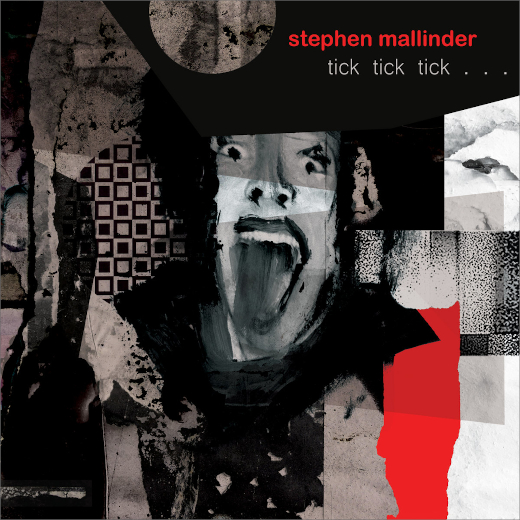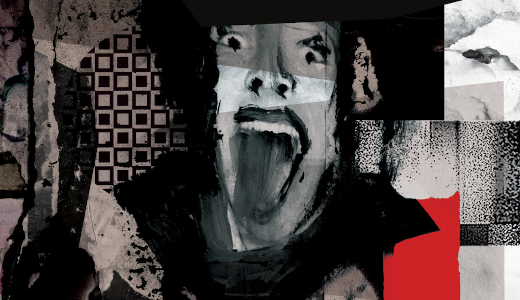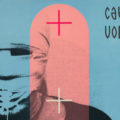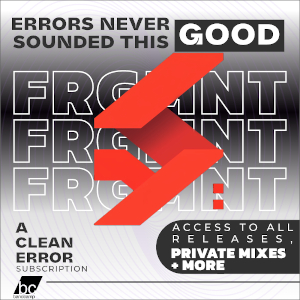Mallinder puts the music firmly in the present while calling back to elements of the past and hopefully setting a course for more great music in the future.

Certainly his best work to date
Over the last 67 years of modern music, countless groups have risen, shone bright, then fallen. During the course of their lives, bands come together, play and split up. Some play together, some do solo work, then break up. In the instance of solo works, it’s common to analyze them from the perspective of the band they sprung from—judging on the criteria of whether it’s as good as their old band. The solo works of Paul McCartney, Keith Richards, Foo Fighters, and many others come to mind.
In addition, there’s always the looming presence of a band’s dimming relevance, the sunsetting of their status as vanguards where they find themselves one day standing onstage at their Rock & Roll Hall of Fame induction. Take for example Kraftwerk’s 1986 album Electric Cafe (Kling Klang), the first album where instead of pioneers leading the world to new sounds and songs, the world had caught up in terms of technology, using samplers to even greater effect than the man-machines did on Computer World and subsequent albums. Eventually the masters turned their sights to American shores, where in cities like Detroit, Chicago, New York and Atlanta, artists were taking inspiration from Kraftwerk’s music and turning it into something else entirely which would then overtake the world.
Of the many grandchildren of Kraftwerk, Cabaret Voltaire became vanguards on their own, harbingers of the strange and weird, the beat and the bleep; the covenant, sword and arm of the lord that is electronic music. During their heyday, they inspired thousands of other musicians to abandon rational thought, plug a guitar into a ring modulator, and scream their way into the world. After almost 50 years of disturbing the peace (with members leaving, reformations, falling outs, breakups, hiatus’ and recreations during this time) the band effectively ended with the death of Richard H. Kirk, whom one could argue became the primary instrumentalist for the majority of the band’s existence, especially after the departure of fellow founding member Stephen Mallinder.
Which is why Mal’s new album tick tick tick will no doubt experience even greater scrutiny than any of his previous solo works. This is especially true given the legacy of his prolific former bandmate Richard H. Kirk, who passed away in the fall of 2021. While certainly less prolific than RHK (partly owing to Mal’s move to Australia, having a family and a career as an educator and journalist) he’s been making his own music over the years. Though Mal had fewer solo works during his period with CV, starting with 1982’s Pow Wow Plus (Fetish), a stark post-punk/post-rock Neo-funk workout (this was recently re-issued by Suction Records on vinyl in 2021), more recently he’s collaborated with others in groups like Hey, Rube!, Ku-Ling Brothers, Wrangler, all in the realm of electronic dance music.

Harbingers of the strange and weird ::
Yet with Kirk’s death, the mantle, the legacy, and the crown of Cabaret Voltaire arguably falls upon its sole surviving member (Chris Watson departed in the early 1980s). With this comes judgement and speculation of how tick tick tick not only stands on its own, but how it measures up against that of his former band and former bandmates.
Simply put, tick tick tick is almost certainly his best work to date and definitely since Pow Wow Plus. With its nine tracks, Mal puts the music firmly in the present while calling back to elements of the past and hopefully setting a course for more great music in the future. “Contact” open with a sparse beat and repetitious electric bass snippet (it’s so wonderful to hear him play bass again) upon which synths build and grow the song into something equal to the needs of the dance floor as well as the bedsit head nodding type; it could almost be mistaken for a Sleaford Mods track until the synths kick in and we go where the maestro takes us which is on a voyage into his world.
“ringdropp” bears a heavy 909/808 beat while snippets of vocals hiss, mutter and stutter across the air, very reminiscent of CV’s 1990 masterpiece of house and proto-techno Groovy, Laidback and Nasty (Parlophone). “Galaxy” is one of the album’s best tracks, starting off quiet before building into an absolute stomper of a techno-tribal invocation with more of Mal’s precise electric bass work, his vocals diving and dreaming across the stereo field. “Wasteland” is a more quiet, meditative track with understated synths and Mal’s eerie, whips vocals. “Hush,” the first single from the album, is another of its best tracks, carries a wistful and slightly melancholic air to it, where some of the synth bass reminds one of Richard H. Kirk as much as Kraftwerk, Mal’s voice admonishing the listener to hush now.
tick tick tick is a must-own for fans not only of Cabaret Voltaire but also electronic music and anyone willing to shake their shaker to a different but very groovy, laid-back and nasty beat.
tick tick tick is available on Dais July 15, 2022. [Site | Bandcamp]























![Allmanna Town :: 1911 EP (Self Released) — [concise]](https://igloomag.com/wp/wp-content/uploads/2025/03/allmannatown-1911_feat2-75x75.jpg)


